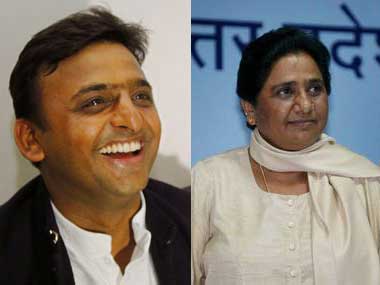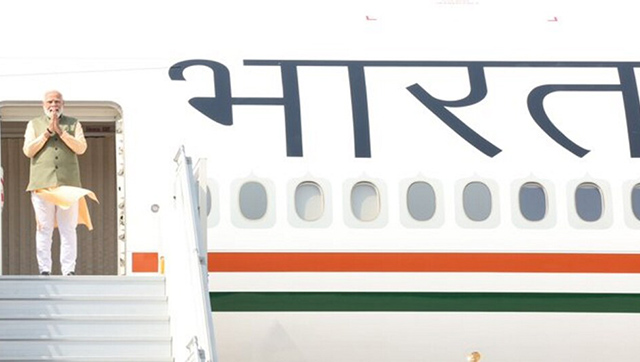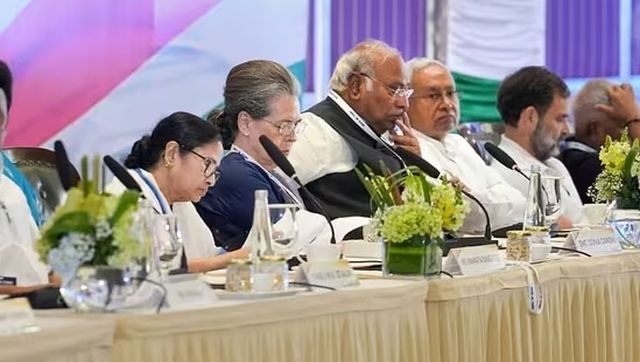Bahujan Samaj Party leader Mayawati’s decision to put in abeyance the grand alliance, or mahagathbandhan, comprising her party, the Samajwadi Party and the Rashtriya Lok Dal, has triggered a wave of disquiet and fury in the Dalit middle class, which influences subaltern politics disproportionately to its number.
A substantial segment of this class thinks Mayawati’s strategy of fielding BSP candidates on all 11 Assembly seats which are to witness a bypoll in the next few months reeks of arrogance, displays her indifference to Dalit sentiments and is evidence of her failure to introspect and expand her political vision.
Those who view Mayawati’s decision through the lens of pragmatism, however, prefer to describe the disquiet among Dalits as one of surprise. They explain the fury of Dalits as an inevitable outcome of the suddenness with which the BSP decided to sever, at least temporarily, its alliance with the SP. They presume these emotions will ebb as Dalits realise, with time, the BSP’s political compulsion to fight the bye-elections all alone.
But such arguments do not convince RK Gautam, who dedicated 11 years of his life to working full time for the BSP in Delhi before he began his legal practice in the Allahabad High Court in 1996. Still a BSP member, Gautam said, “I think Behenji [Mayawati> has made a terrible mistake.”
In an informal meeting of Dalit activists that Gautam attended in Allahabad, he found them enraged at Mayawati’s decision to break the alliance with the SP. He said, “She talks about Yadavs not voting for the mahagathbandhan. What if someone were to ask her whether non-Jatav Dalits voted for the alliance? She has been wooing Brahmins, but did they vote for her? Why doesn’t she sack Satish Chandra Mishra (Rajya Sabha MP and all-India general secretary of BSP)?”
Gautam said the mahagathbandhan may have underperformed in the election, but its real significance was that it helped bridge the chasm between the SP’s Yadav supporters and the BSP’s army of Dalits that had emerged, and widened, since 1995. In that year, a posse of SP MLAs attacked the guest house where Mayawati had been holed up with her party legislators before pulling out of the SP-BSP coalition government of Mulayam Singh Yadav.
The mahagathbandhan, stitched up in January, promised to squeeze out the bitterness from the Dalit-Yadav relationship and reconfigure their ties to their mutual benefit. “Mayawati stays in Lucknow and Delhi. She doesn’t have to face the consequences of her decisions,” said Gautam. “It is we workers who are abused, beaten up and murdered for our activism. It is Dalit women who get raped. Behenji’s politics ends up pitting Dalits against all other castes.”
Gautam’s observation requires parsing: As the weakest among all Hindu social groups, despite a thin crust of middle class emerging because of the reservation policy, Dalits require the support of at least one dominant social group to pursue their politics of assertion in various pockets of Uttar Pradesh. Otherwise, the price they have to pay is enormous.
This was precisely why the rebooting of the SP-BSP relationship generated much excitement, particularly after SP leader Akhilesh Yadav’s wife, Dimple, touched Mayawati’s feet in Kannauj in April. “Election is not everything. Mayawati should have factored in the mahagathbandhan’s influence on the society before deciding to walk out of it,” said Ram Chandra, professor of Hindi, Jawaharlal Nehru University.
Chandra said the decades of simmering tension between the Yadavs and Dalits in, say, the Etawah-Mainpuri belt reportedly ebbed with the formation of the mahagathbandhan. “The Bahujan middle class used to feel that both the Dalits and Yadavs should come together – and mahagathbandhan was an expression of this sentiment.”
Bahujan intellectuals backed the SP-BSP alliance because they thought the Yadavs and Dalits could form the nucleus of the opposition against religion-based politics and hyper-nationalism. Instead of enhancing the expression of the Bahujan middle class’ wish, Mayawati appears to have gone out of her way to erase it. “After 23 years, Mayawati got the Dalits to vote for the cycle (SP’s symbol). And now, all of a sudden, she wants them to take a separate path. There can’t be a bigger joke than that,” said Chandra.
Bahadur Ram, a retired deputy superintendent of police who lives in Allahabad, is so broken by Mayawati’s decision that he predicted. “This just might be the end of Mayawati.” Ram pointed to the structural flaws in the BSP to explain why the party has failed to expand for years. “She is a dictator who does not take into account the wishes of her supporters. The seeds of authoritarianism were sown by (BSP founder) Kanshi Ram, who left it to the party supremo to decide who would be his or her successor. The BSP should have had a politburo, a committee to whom the leadership should have been accountable,” Ram said.
He thought the BSP’s other flaw was to strengthen each caste which is said to constitute the Bahujan samaj. “Each of these castes has strengthened and broken away because it wants a share in power. The BSP’s ideology is artificial and hollow,” Ram said. It is hollow because, as JNU’s Chandra said, “BSP has ended up strengthening, not annihilating, caste, as BR Ambedkar wanted.”
The anger among the Dalit middle class is, perhaps, a result of its expectations being at variance with those of the political class. As Rajesh Paswan, who teaches Hindi in JNU, said, “The meaning political alliances have for the people is very different from what it does for those who are the insiders. For politicians, an alliance is a route to power. For the ordinary person, it holds out the possibility of a revolution.”
The mahagathbandhan created a buzz because it held out the possibility of Dalits, OBCs and members of the civil society acquiring better representation in institutions and ending oppression. It also signified the possibility of mounting strong opposition to the ruling Bharatiya Janata Party. “Mayawati’s decision is disappointing because it marks a slide on both these counts,” Paswan said.
However, there are others who think the fury of Dalits has risen from their misinterpretation of Mayawati’s decision. “Their premise is wrong,” said Raj Kumar, associate professor, political science, Delhi University. “She hasn’t terminated the alliance, but only pressed the pause button.”
Sociologist Vivek Kumar, of JNU, said he could understand the anger of Dalits as they are unable to make sense of Mayawati’s decision. “It happened suddenly. But she has been very appreciative of Akhilesh Yadav. The 25 years of animosity between the Yadavs and Dalits have been replaced by amity. Mayawati is very clear that the BSP and the SP will need to come together to take on the communal forces.”
Kumar thinks she has decided to go it alone for the byelections to ensure that the BSP cadres don’t become complacent and work to consolidate the gains the party made in the Lok Sabha election. “If her cadres know that half of the State Assembly constituencies will go to the SP, they are bound to lose interest in working for the party. It could prompt some of them to switch to the Congress (which fielded several rebel BSP candidates in the Lok Sabha election) and the SP, or even to the BJP,” Kumar said.
Mahesh Prasad Ahirwar, professor of Ancient Indian History, Banaras Hindu University, agreed with Kumar. “It is wrong to say that Mayawati has said a final goodbye to her allies. She has, in fact, said that the BSP’s relationship with the SP will continue.”
But Mayawati, in the manner of savvy leaders, cannot ignore certain political realities, Ahirwar said. “It does seem the SP has lost its support base among Yadavs. Could Mulayam Singh Yadav have won by less than a lakh of votes? Could three members of his family have lost the election?” he asked.
Ahirwar raised these questions to point out that the Yadavs are averse to voting for Dalits because the former consider themselves superior to the latter in the caste hierarchy. “There were videos which instigated the Yadavs by saying that why Akhilesh’s wife should touch Mayawati’s feet,” Ahirwar said.
He lists the vicious videos aimed at cracking the BSP’s social base, for instance, short clips shared on WhatsApp telling Dalit subcastes such as Khatiks, Dhobis and Pasis that the BSP is the party of Jatavs. Another one nudged Dalits not to vote for the party as it has become the preserve of a Brahmin (a reference to Satish Chandra Mishra).
In other words, both the SP and the BSP have to ensure their workers strive to counter the campaign inimical to their interests, and that this is perhaps better done separately than together. “What happens next will depend on the results of the byelections,” said Ahirwar.
But there is always the chance of the election campaign reopening the old wounds that the SP and the BSP inflicted on each other. It could very well happen in unexpected ways. For instance, the equity that Akhilesh has acquired among Dalits could make some of them view the SP favourably. “The Facebook posts of Dalits have many of them saying that they will vote for the cycle next time,” said Chandra. These posts have been undoubtedly made in pique. But what if an angry segment of Dalits does indeed carry out its threat? Mayawati will not relish Dalits deserting her for Akhilesh.
Regardless of what Mayawati’s calculations were to break — or, as some say, put a pause on — the alliance, there is no denying the split in the Dalit middle class. For one who lost a chunk of non-Jatav Dalits and the most backward castes over the years, a phalanx of the Dalit intelligentsia speaking out against her isn’t what Mayawati would want at this late stage in her career.


)




)
)
)
)
)
)
)
)